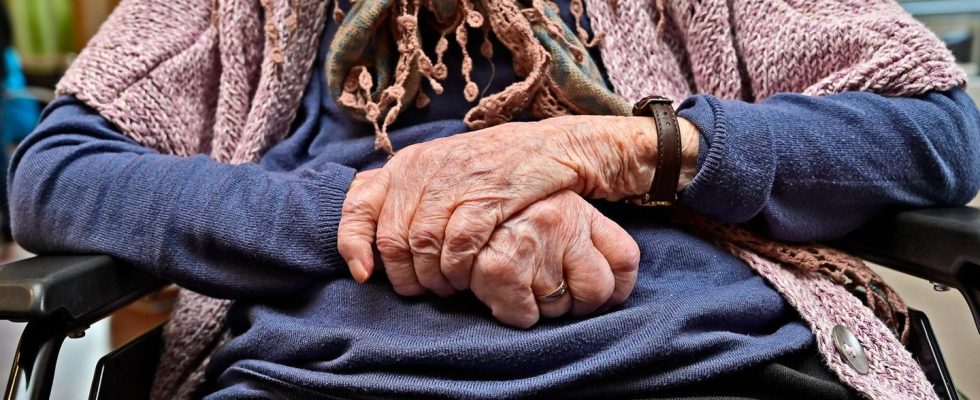Care
Despite relief surcharges: places in nursing homes are becoming more and more expensive
The costs for those in need of care are increasing. The increase in costs is also due to higher personnel expenses.
© Ralph Lueger / Imago Images
The cost of a place in a nursing home is a problem for many people in need of care. And it is becoming more and more expensive, as a new evaluation shows: On average across Germany, those in need pay 2548 euros per month.
People in need of care and their families have to pay more and more for the pay for home care. This was the result of an evaluation by the Association of Substitute Health Insurance Funds as of July 1st. In the first year in the home, a nationwide average of 2548 euros per month was due – 348 euros more than in mid-2022. The burdens continue to grow despite the relief surcharges that have now been introduced. Among other things, higher wages for urgently needed nursing staff have an impact. But accommodation, food and drink costs also went up.
On the one hand, the sums include a personal contribution for pure care and support. Unlike health insurance, long-term care insurance only pays part of the costs. For residents of the home, there are also costs for accommodation, meals and investments in the facilities. Without the relief surcharges, it would now be an average of 2610 euros per month as a total additional payment, as can be seen from the data available to the German Press Agency. Below that, the personal contribution for pure care alone rose within twelve months by 281 euros to an average of 1245 euros per month.
Nursing: Higher personnel expenses a reason for cost increases
As a cost brake, there has been a surcharge in addition to the payments from the care insurance fund since 2022, which increases with longer stays. This reduces the personal contribution only for care by 5 percent in the first year in the home, by 25 percent in the second, by 45 percent in the third, and by 70 percent from the fourth year. Even with the highest surcharge, the co-payments rose to an average of 1738 euros per month – that was 165 euros more than in mid-2022. Remuneration agreements between the long-term care insurance funds and homes in all federal states were evaluated. The data refer to residents with care grades 2 to 5.
The increase in costs is also due to higher personnel expenses. Because since September 2022, all facilities have had to pay nursing staff according to a collective agreement or something similar in order to be able to settle accounts with the nursing care insurance companies. The previous black and red government had introduced the requirement – also to keep and attract nurses in the profession. “We support the measures for fair payment of the nursing staff,” said Jörg Meyers-Middendorf, representative of the board at the substitute health insurance association. However, it cannot be the case that the steadily increasing costs have to be borne largely by those in need of care. “If more and more people can no longer afford to stay in a nursing home, something is going terribly wrong.”
care in old age
Seven questions everyone needs to ask themselves before retiring
Not the same burdens everywhere
There are regional differences. The most expensive was the care in the first year in the home in Baden-Württemberg with an average of 2913 euros per month – the lowest was the burden in Saxony-Anhalt with 1994 euros. The nationwide average for accommodation and meals was now 888 euros per month, after 814 euros in mid-2022.
In order to counteract further additional burdens, the Bundestag has decided on a care reform. According to the law of Federal Health Minister Karl Lauterbach (SPD), the relief surcharges will be increased on January 1, 2024. The personal contribution for pure care should be reduced by 15 instead of the previous 5 percent in the first year in the home, by 30 instead of 25 percent in the second year, by 50 instead of 45 percent in the third, and by 75 instead of 70 percent from the fourth year.
However, this should only moderate the trend in the short term, said Meyers-Middendorf from the substitute health insurance association. “A solution is needed promptly to provide sustainable relief for those in need of care, which does not only weigh on the backs of the contributors.” This includes finally obliging the federal states to assume the investment costs in the homes. That would immediately relieve those in need of care – according to the new figures from July 1st, by an average of 477 euros per month.

